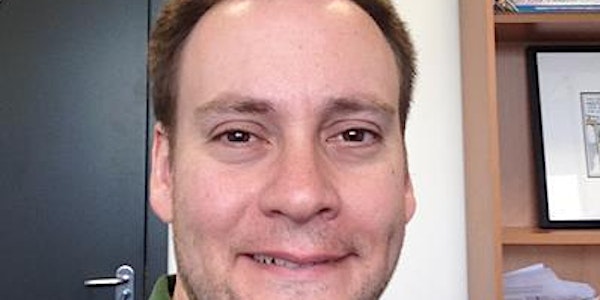
Prof Brad Karp's Inaugural Lecture
Date and time
Location
Roberts G06LT
Roberts Building UCL London WC1E 7JE United KingdomDescription
Scalable and Secure Systems and Networking: Algorithms, Adversaries, Doubt, and Details
Introductions by John Shawe-Taylor, Professor and Head of Department of Computer Science, UCL; and Michael Walfish, Associate Professor of Computer Science at New York University
Vote of thanks by Scott Shenker, Professor of Computer Science at UC Berkeley
(a drinks reception will follow in Roberts Foyer)
Abstract
Networking has profoundly improved modern life by enabling ubiquitous access to vast stores of information. The Internet already interconnects billions of users and a globally distributed collection of servers. As the next several billion Internet users connect wirelessly and the population of embedded devices increases by orders of magnitude, we face unprecedented scaling challenges. More worryingly still, our success in interconnecting the world's computer systems has done harm. Providing remote reachability for computer systems that run imperfect, vulnerable software puts individuals’ and organizations’ security and privacy at risk. In this talk, I will present an array of techniques that enable scalable and secure networks and computer systems, including:
- scaling wireless networks to vast device populations (geographic routing)
- scaling interfering wireless networks’ capacity (cooperative power allocation)
- stopping the spread of malicious code within networks (automatic worm signature generation)
- preserving users’ privacy even when an attacker successfully exploits software (exploit-tolerant architecture), and
- enforcing privacy for web browser users’ sensitive data in the presence of malicious web code (COWL, Confinement with Origin Web Labels).
In discussing these seemingly disparate problems and their solutions, I will highlight the shared characteristics of the systems approach that underlies them, which emphasizes:
- the design and application of efficient algorithms;
- explicit consideration of adversarial workloads;
- careful attention to whether a design will work in practice; and
- “bottom-up” design—leveraging low-level detail in a complex computer system in the service of design goals.
Biography
Brad Karp is a Professor of Computer Systems and Networks and Head of the Systems and Networks Research Group in the Department of Computer Science at UCL. His research interests span computer system and network security (current work includes web browser and JavaScript security; past work includes the Wedge secure OS extensions and the Autograph and Polygraph worm signature generation systems), large-scale distributed systems (recent work includes LOUP, a provably loop-free Internet routing protocol; past work includes the Open DHT shared public DHT service), and wireless networks (current work includes techniques for improving capacity at the MAC and PHY layers; past work includes the GPSR and CLDP scalable geographic routing protocols). Prior to taking up his post at UCL in late 2005, Karp held joint appointments at Intel Research and Carnegie Mellon, and as a researcher at ICSI at UC Berkeley. He is a recipient of the Royal Society-Wolfson Research Merit Award (2005-2010) and the Henry Dunster Tutor Prize (1994, for excellence in advising Harvard undergraduates). He served as program co-chair of ACM SIGCOMM 2015, and as a member of the ACM HotNets Steering Committee from 2009-2014. Karp earned his Ph.D. in Computer Science at Harvard University in 2000, and holds a B.S. in Computer Science from Yale University, earned in 1992.